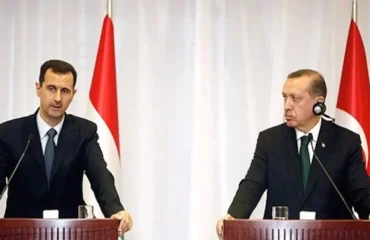

The Ministry of Foreign Affairs issued a statement condemning some of the foreign reactions to the heavy-handed approach of the Turkish government in reaction to the protests at Boğaziçi University. It saddens me to see that the 150 years old reputation of our Foreign Ministry is being ruined. The epicenter of the country’s foreign relations is increasingly moving away from professionalism. And it increasingly seems to operate more as the political policing force of a single political party. The statements published by the Ministry are perhaps the most visible externalities of this reality.
Traditional principles of diplomacy such as expediency, objectivity, consistency, and moderation of style have been completely abandoned. Instead speaking and writing in a patronizing, contemptuous, and defiant language is now considered a virtue.
The Boğaziçi University example
Recently, teachers and students of Istanbul’s Boğaziçi University have launched peaceful protests against the presidential appointment of a new rector from out of the university. When security authorities reacted with unnecessary violence and rhetoric to these protests, the government faced heavy criticism domestically as well as abroad.
The most prominent statement from an allied country came from the U.S. Department of State. It wasn’t unexpected that our political authorities would react to this statement. And any verbal or written reaction, by the spokespersons of ruling parties, would have been considered business as usual. However, a statement attributed to our ministry of Foreign Affairs was soon trending on social media. It was a “mind your own business” type of statement.
Questioning its authenticity
At first, I questioned the authenticity of the statement because it wasn’t written in a style that was compatible with basic diplomatic aptitude. It was written in a condescending, arrogant and aggressive manner; language more becoming of a small-town politician than a foreign ministry. It was immediately clear to me that the statement was not drafted by a foreign service professional. Even a fresh diplomat with minimal experience and with instructions to be very blunt would not have opted for this language. Much to my dismay, a quick visit to the Ministry’s website, confirmed that the statement was authentic. My unease and concern grew even further when I read the English translation of the statement.
I am deeply saddened to see that the Ministry of Foreign Affairs – an institution of which I am a proud member and which I have served for nearly forty years – is being abused so rudely for political purposes.
International reputation, effectiveness
Turkey’s foreign affairs have always been based on the principle of mutual respect and commitment to democracy, law, justice, universal values and individual freedoms; it has never moved away from science and rationalism. Our Ministry of Foreign Affairs has unfailingly carried out the country’s diplomacy by adhering to the principles of consistency, determination, reliability and predictability. And was consequently rewarded with an international reputation of efficiency, respectability and credibility.
All Turkish diplomats who received a master-apprentice training know that there is no correlation between exciting the masses with political rhetoric and protecting national interest. One of the biggest mistakes in foreign policy is to be motivated by short-term domestic politics. Rallying a political base by stirring up their emotions on foreign policy issues will inherently isolate a country; just like Turkey is now losing its international friends and allies.
Foreign Ministry: also a school with a history
In foreign policy, it is not enough to be right or prove that the other party is wrong. What really matters is that you succeed in convincing your stakeholders, i.e. other countries.
Just like Boğaziçi University, our Ministry of Foreign Affairs is a centuries-old school where the most talented students of our country come to study the very delicate art of diplomacy. It is a school with a 150 years of history as well. All diplomats are students who devotedly study to protect the interests of their country. Just as we are obliged to keep our universities, which are homes of science, away from politics, we also have to carefully avoid contaminating our Ministry of Foreign Affairs with politics.
And those who believe that “hubris diplomacy” will bear results in a World prioritizing science and technology, are sadly mistaken.


